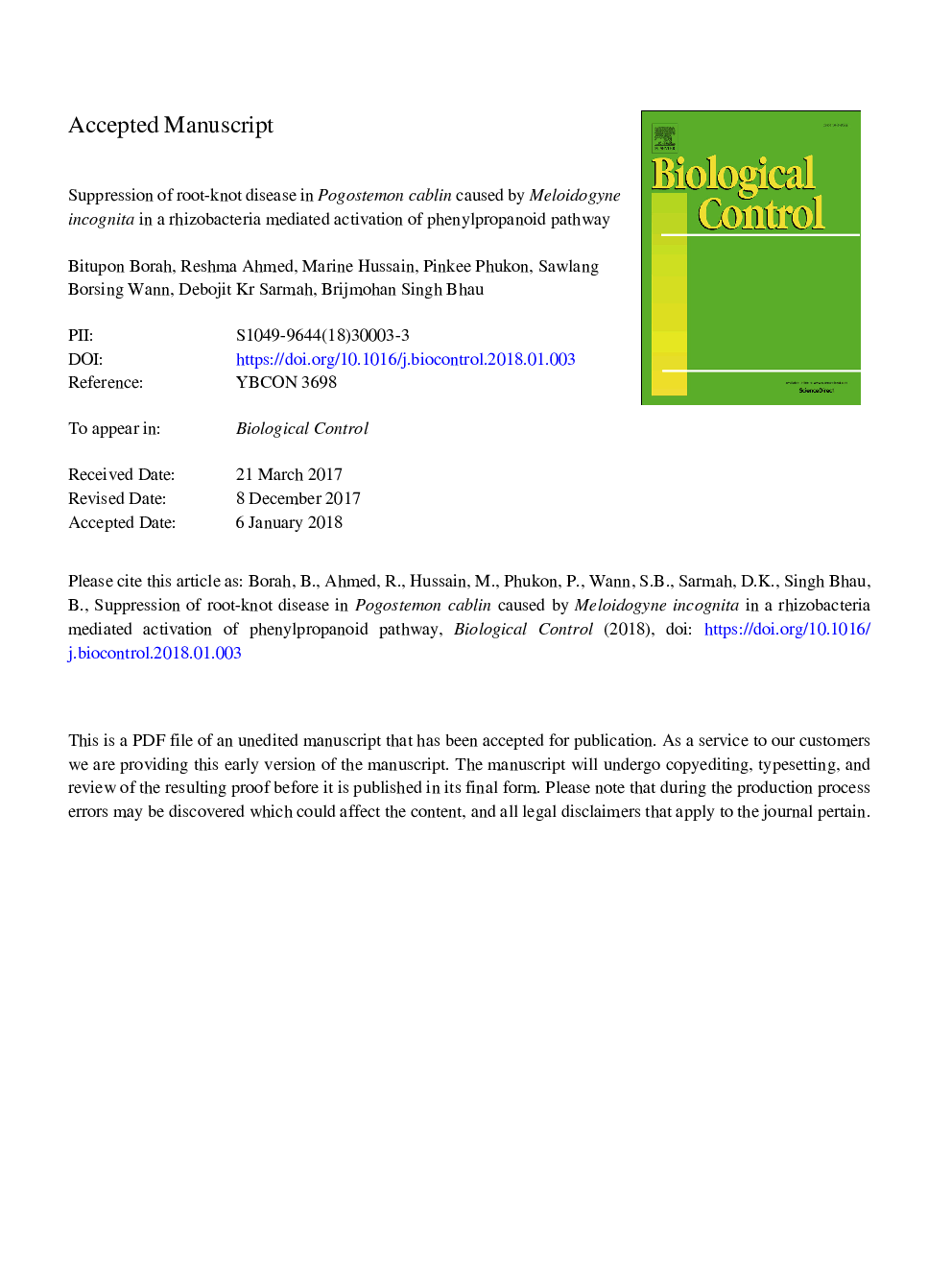| Article ID | Journal | Published Year | Pages | File Type |
|---|---|---|---|---|
| 8877713 | Biological Control | 2018 | 30 Pages |
Abstract
Biological control of plant diseases using Plant Growth Promoting Rhizobacteria (PGPR) is an emerging technique, not only because it provides control over the disease, but also acts in an eco-friendly way. In this study the isolated Pseudomonas putida strain, BG2 (KU312064.1) and Bacillus cereus BC1 (KX762284), promoted growth as well as provided resistance to Meloidogyne incognita infection. From the gene expression analysis it was found that both the strains activated phenylpropanoid pathway through - overproduction of Phenylalanine ammonia lyase (PAL) enzyme. Further, the BG2 strain also activates the chalcone synthase enzyme leading to the synthesis of flavonoids, which are known to possess nematicidal activity. We finally concluded that the BG2 and BC1 strains can be a potential biocontrol agent to deal with root-knot disease of Patchouli caused by M. incognita, and of benefit for the overall growth of the plant including increase in essential oil yield.
Related Topics
Life Sciences
Agricultural and Biological Sciences
Agronomy and Crop Science
Authors
Bitupon Borah, Reshma Ahmed, Marine Hussain, Pinkee Phukon, Sawlang Borsingh Wann, Debojit Kr. Sarmah, Brijmohan Singh Bhau,
